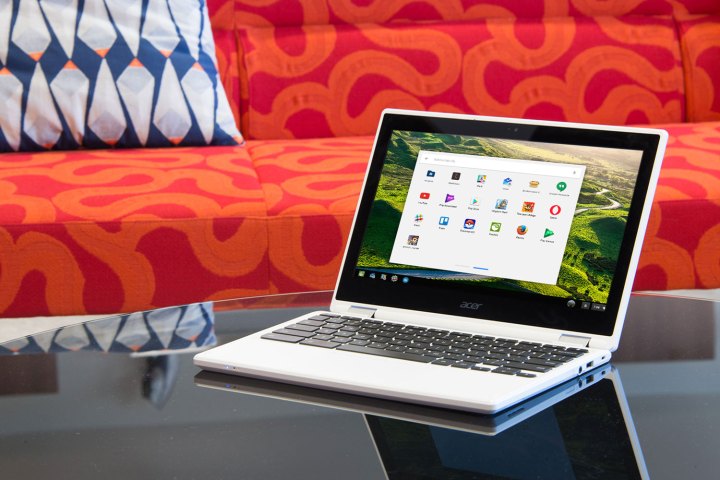
In an interview with the Telegraph, Android and ChromeOS chief Hiroshi Lockheimer says the two operating systems will not merge, as in they will not be running the same source code. However, there will be a few features that unite the two together.
Two of these features have already been implemented: Seamless updates and Android apps on ChromeOS. Seamless updates is a ChromeOS feature that allows Chromebooks to update in the background — this was recently introduced in the latest
The third way ChromeOS and Android will unite “is the Google Assistant.”
“I guess you could call that a merging of experiences, but in the sense of talking about the code base the answer is no,” Lockheimer tells the Telegraph. “But experientially the answer is yes, we want these things to get closer and closer together and know about each other. So your Chromebook could run the same application you’re running on your phone, if you have a Sonos system at home and you want to control it, why not on both? Or have the [Google] Assistant knowing you through those two devices.”
Google introduced the Assistant, an artificially intelligent bot, in its Allo messaging app for iOS and Android. The Assistant is now available on the Pixel smartphones, as well as Google Home, an Amazon Echo competitor.
Lockheimer has repeatedly denied rumors of a merger between the two operating systems, and has opted to say the two will borrow features from each other.
“A wholesale merger of the two [operating systems], we don’t think its necessary to do that,” he said.
His statements put a dent in rumors of a new operating Google is working on code-named Andromeda, but based on Lockheimer’s words, it’s more likely that Andromeda is a version of ChromeOS with Assistant and other Android features. Lockheimer’s suggestion of using your Chromebook and
Google did not respond to a request for comment.
In the interview, Lockheimer also says that Android Instant Apps is still under active development, and that the company is testing the service with developers. Instant Apps would allow users to access an app-like interface of a service without having to install anything. Perfect use-cases would be for apps “you don’t always need,” but are useful in the moment — like the Heathrow Express or Hotel Tonight apps.
Editors' Recommendations
- Google may finally merge Android and ChromeOS after all
- Wear OS 5 is the future of Android smartwatches. Here’s what’s new
- Google is making it easier for you to find and download Android apps
- Google just released the first Android 15 beta. Here’s what’s new
- iOS 18 could make my iPhone look like Android, and I hate it


